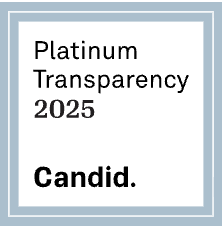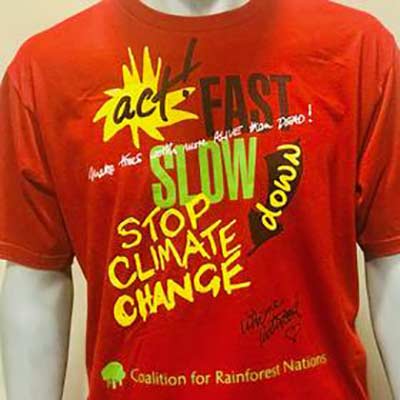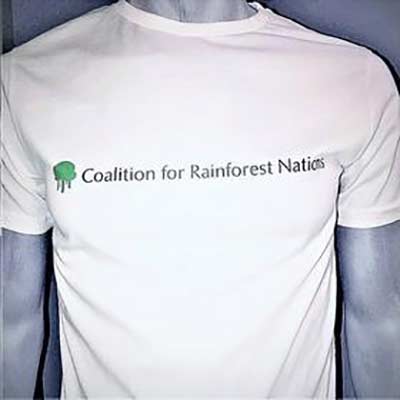
No Net Zero Without Nature
No Net Zero Without Nature
This year, the World Meteorological Society reported that there is an 80% likelihood that we will exceed 1.5°C for at least one of the next five years. We are truly in the eleventh hour. Article 6 can become the lynchpin in the Paris Agreement’s efforts to slow climate change, engage the private sector, and support the Global South. Article 6 must deliver real, additional, and verified emission reductions and removals with the necessary speed and scale. For rainforest nations, Article 6 must become a robust finance tool to support efforts under Article 5.2 to conserve rainforests through the sale of Internationally Transferred Mitigation Outcomes (ITMOs).
Join us for a series of topics on Article 6 throughout COP29 presented by Coalition for Rainforest Nations and fellow Global Climate Allies. This series is designed for all people that want a better understanding of the Paris Agreement, climate policy, carbon markets, and sustainable development. Our expert speakers, with years of climate negotiation experience, will provide valuable insights and answer your questions on these critical topics.
Sponsors and Collaborators:


Conference Program
Keep in touch with CfRN’s COP28 pavilion events, livestreams, and more.
Conference Program
Keep in touch with CfRN’s COP29 pavilion events, livestreams, and more.
Thursday, November 14th
THEME DAY: Finance, Investment and Trade
To meet our climate goals, we need to collectively scale up climate finance whilst ‘greening trade’ – promoting environmental goods and low-carbon technologies. This can create sustainable jobs and ensure that Global South countries have access to the investment and technologies needed to implement long-term climate goals.
10:00-10:45am
From Baku to Belem: Building a Finance Pathway for a Sustainable and Regenerating Ocean
Moderator
- Chip Cunliffe, Senior Director, Innovation and Pipeline Development, Ocean Risk and Resilience Action Alliance (ORRAA)
Speakers
- Markus Mueller, Chief Investment Officer ESG Private Bank, Deutsche Bank
- Angelique Pouponneau, Former CEO, SeyCATT
- Suzanne Johnson, Senior Advisor, UN Global Compact
- Marcelo Furtado, Principal, NatureFinance
11:00-11:45am
2:15-3:00pm
How Article 6 brings Article 5.2 REDD+ to Global Carbon Markets.
- Article 5.2: Will the Real REDD+ step Forward?
- Article 5.2 & Private Finance
- How does Article 5.2 work?
- How Article 6 works for Article 5.2
- How do ITMOS differ from other carbon credits in terms of how they are registered, measured, and verified?
Moderator
- Kevin Conrad, CfRN
Panelists
- Federica Bietta, CfRN
- Marciano Dasai, Minister of Spatial Planning and Environment, Suriname
-
Markus Muller, ESG & Global Head of Chief Investment Office, Deutsche Bank
-
Nigel Howorth, Partner, Clifford Chance LLP
4:00-4:45pm
Friday, November 15th
THEME: Energy / Peace, Relief and Recovery
Energy is the largest contributor to greenhouse gas emissions and is a top priority for global climate action. Building on the outcomes of the first Global Stocktake and moving towards implementation, COP29 will provide a space for stakeholders to gather and make collective progress. Climate and peace are deeply inter-connected, as climate events and conflicts can cause human insecurity and forced migration, affecting mostly the vulnerable groups in developing and lower-income countries.
11:00-11:45am
Climate Science: The 2024 Global Carbon Budget and The Global South
The Global Carbon Project, led by the University of Exeter, publishes its annual report on efforts to hit the 1.5 degrees target on November 13th, 2024. How close are we to hitting 1.5 degrees, what are the implications for big emitting countries, fossil fuels companies and the finance sector? Also, how have the rainforest nations fared in slowing deforestation over the past 12 months?
Moderator
- Kevin Conrad, ED, CfRN
Presenter
- Stephen Stitch, scientist Global Carbon Project
Panelists
- Joerg Eigendorf, Deutsche Bank
- Pradeep Philip, Access Economics, Lead Partner, Deloitte
2:15 – 3:00pm
Article 6 Fireside Chat Series: What is Paris Agreement Article 6 and how will it work?
- Unpacking Article 6.2: Cooperative Approaches
- Article 6, paragraphs 2 and 3
- Decisions 2/CMA.3 and 6/CMA.4
- Definition of ITMOs, Concepts, and Terminology
- Participation Requirements
- REDD+ Requirements under Article 5.2
- REDD+ Results and ITMOs
- REDD+, ITMOs, and NDCs
- Q&A Session
- Michael Mitchell, CfRN
- Leonardo Massia, CfRN
5:00 –5:45pm
Saturday, November 16th
THEME: Science, Technology and Innovation/Digitalization
Digital technologies have a key role to support climate action and halt deforestation by 2030.
11:00-11:45am
Article 6 Fireside Chat Series: Article 6.2: Cooperative Approaches
This session will provide an in-depth exploration of Article 6.2, focusing on cooperative approaches and the intricacies involved.
Agenda:
- Unpacking Article 6.2: Cooperative Approaches
- Article 6, paragraphs 2 and 3
- Decisions 2/CMA.3 and 6/CMA.4
- Definition of ITMOs, Concepts, and Terminology
- Participation Requirements
- REDD+ Requirements under Article 5.2
- REDD+ Results and ITMOs
- Michael Mitchell, CfRN
- Eduardo Reyes, CfRN
2:15 – 3:00pm
Championing Biodiversity Metrics & Cross-Sector Integration
As biodiversity loss continues to be a pressing global issue, it is imperative to develop scientifically grounded methods to monitor, report, and verify biodiversity metrics. NTUEF, with over 120 years of experience and research data on nature and ecosystems, is committed to developing biodiversity-related methodologies, indices, and metrics. These efforts aim to serve as a foundation for a comprehensive biodiversity credit scheme. BioPlus, specializing in biodiversity facilitation, works to integrate Indigenous Peoples and Local Communities (IPLCs), academic institutions, and business sectors across Asia in biodiversity conservation efforts.
The World Climate Foundation, a significant global climate and biodiversity platform, is dedicated to promoting global sustainability initiatives and has agreed to collaborate with NTUEF and BioPlus to support the NTUEF biodiversity credit scheme and BioPlus integration efforts. This panel celebrates the signing of a memorandum of understanding between NTUEF, BioPlus, and the World Climate Foundation to champion biodiversity metrics and facilitate cross-sector integration.
Moderator
- TBC
Panelists
- Professor Tsai Ming-Jer, Experiment Forest Director, National Taiwan University
- Professor Ko Chun-Han, Experiment Forest Deputy Director, National Taiwan University
- Jens Nielsen, CEO, World Climate Foundation
- BioPlus representative, TBC
4:00 – 4:45pm
This panel discussion will convene global leaders from government, industry, and civil society to explore the significant role of critical minerals in operationalizing a just energy transition.
Key discussion points:
- Insights from the recent UN Panel report on Critical Energy Transition Minerals
- Critical factors for scaling solutions and ensuring equitable access to these resources
- The intersection of investment, finance, and sustainability in the context of critical minerals”
Moderator
- Prof. Lisa Sachs, Director, Columbia Center on Sustainable Investment
- Patricia Ellen da Silva | Managing Partner, Brazil | SYSTEMIQ
- Luciana Brum | External Affairs General Manager | Vale
Monday, November 18th
THEME: Human Development / Children and Youth / Health / Education
Climate change will require a whole-of-society approach, supported by healthier, better educated, and adequately skilled individuals, in particular youth. The first-ever Human Development Day will take a holistic view of climate change that treats human development, youth, health and education as inter-related issues to be supported, while also addressing each thematic issue as a standalone priority.
11:00-11:45am
Article 6 Fireside Chat Series – Article 6.8 Non-Market Approaches
This session will provide an in-depth exploration of Article 6.8, focusing on Non-Market Approaches and the intricacies involved.
Agenda:
- Update on UNFCCC Negotiations from SBSTA 60
- Relationship between Article 5.2 and Article 6.8
- Understanding Implications of Article 6.8 on Article 6.2
- Michael Mitchell, CfRN
- Dr Jagdish Kishwan, CfRN
2:30-3:15pm
4:00-4:45pm
Global Youth Engagement & Priorities in Rainforest Conservation
Tuesday, November 19th
THEME: Food, Water and Agriculture
Global warming disrupts the water cycle and threatens food security for people worldwide. At COP29, all stakeholders can come together to build on momentum and commit to coherent and collective action on climate and agriculture issues
11:00-11:45am
2:15-3:00pm
Rainforests and Water: Regional Perspectives from Africa and Central America
This panel addresses the crucial interlinkage between rainforests in the Congo basin forests and their importance for providing water supplies to all of central Africa. It also looks at the importance of the Panama canal for world’s economy, and the need for rainforests to support water to the canal.
Moderator
- Kevin Conrad, ED, CfRN
Panelists
- Martine Badibanga, REDD+ Focal Point for Democratic Republic of Congo
- Eduardo Reyes, ex-vice minister of environment, Panama
4:00-4:45pm
Wednesday, November 20th
THEME: Urbanization / Transport / Tourism
Focus: Addressing the challenges of climate change in urban environments requires greater engagement across all sectors and levels, from the local to the regional and global. Additionally, the role of transportation in climate agenda will be addressed as a related priority. We will also host the first Tourism Day at a COP to increase attention on how the sector is affected and can contribute.
11:00-11:45am
2:30-3:15pm
4:00-4:45pm
Moderator:
- Sohayla Eldeeb
Speakers:
- Paloma Costa, 1st UN SG’s Youth Advisory Group on Climate Changes
- Srijani Datta, Oxfordshire County Council
- Oscar Leung, Co-founder, Healing Parks
Thursday, November 21st
THEME: Indigenous Peoples / Gender Equality / Nature and Biodiversity / Oceans and Coastal Zones
Focus: Indigenous Peoples preserve 80% of the world’s biodiversity and 36% of intact forest landscapes, whilst women-led climate action and nature-based solutions represent transformative pathways for climate mitigation and adaptation. Water is also essential to the well-being of both human societies and nature and biodiversity.
11:00-11:45am
2:15-3:00pm
: The Importance of Rainforests for Biodiversity: How carbon can be used as a proxy for protecting biodiversity through the Paris Agreement
4:00-4:45pm
Empowering Africa Women in Climate
Watch the latest recording of our events from the CfRN stand at COP29
Giving Tuesday Day 3




